Spume
(1)
On the crossing from Ullapool to Stornaway on the Calmac, I wrote myself a list of rules, a set of behaviours that would concentrate my efforts, or assuage any guilt from any feelings of impotence, in my seven days aboard the ship.
(1.1)
Rules:
(1.1.1)
Take photographs, more than you need to, get in the habit, retrain your eye, though don’t get too accustomed to seeing things like this.
(1.1.2)
Record audio, snapshots, journey-sounds (like Kefalonia!).
(1.1.3)
Draw if you can, and write if you can, but only if you can, and don’t put too much pressure on yourself to do this, and remember, it’ll probably be garbage, the first lot.
(1.1.4)
Take notes, tiny fragments, in the morning, in the evening, again, snapshots of the journey, where you are.
(1.1.5)
And take yourself OFF.
(1.2)
And I found a seat looking out to the crooked beak of the boat, in the window, slumped, listening to my music through headphones, Nils Okland, Norwegian, Straum, the sympathetic strings of the Hardingfele fiddle that would soundtrack my week.
(1.3)
Most of these rules I didn’t stick to, but the last I recalled frequently as the thirteen of us crew members landed upon island stumps and isthmuses, and instantly spread about, and I traced those outdoor jackets in boys’-bedroom-colours upon the ridges and the beaches, and I would hold back, and find my own way, off.
(1.4)
Our stock, therefore, our notes and drawings and images, were dead different as we tripped upon different stimuli with different lenses with varying reach. For me, I want to find my own intimacy with the ship, I said, ridiculous, taking myself off; there are only so many images one can stomach of nature, see, of dolphins and whales and rock 4.6 billion years old, bowing, the orange-peel sea and seals and rock pipits, and puffins and cormorants and shags, and “stubby bills and bull-necked jizz and flap-and-glide-flight,” and blue sharks breaching, Really?
(1.5)
I found a black-faced sheep, dead on Rona, A rock that looked like sheep fleece, Bog cotton sedge that looked like sheep fleece, Spume that looked like sheep fleece, And sheep fleece that looked like butchery, showing in shaggy tendrils the way in which the wind blew when they came to do the shearing.
(2)
A journalist asked me, in the way journalists ask you, the direct question, What has changed you, journeying to these islands? And I started off by saying I was from Dundee, but this, here, is foreign to me, and I have looked to my fellow crew, these people from Skye, Orkney, Shetland and Lewis, and their enormous sense of place, not inherited, no, not necessarily, not passed down by four generations of islanders, but a sense of place all the same, one that is uniquely theirs, belongs to them, wrought from their interactions with the people and the landscape, their investment in their community through their jobs and their living there. And I couldn’t quite say what I meant, stammering over the word “site-specificity,” but I wanted to say it was something huge, a huge sense, far bigger than I had known before, and that being here for even a few days in their company, I had begun to imagine what this would feel like.
(2.1)
Your accent sounds like you’re from Lewis or Harris, he said after we’d finished the interview. No, it’s been softened by being in London for over ten years, I said, and having taught English as a foreign language. I had to flatten it out, learn to speak more slowly and pronounce my Ts, MOTORBOAT, though it all comes back when I’m up in Scotland, I said, I mean, when I’m back home. You’re a good mimic, he said, and I felt it sting, whether he meant it to or not. I felt disingenuous, found out, for it was true that I’d taken up the lilt of Ian Finlay’s and the measured-ness of John’s speech. This waned as I drank till daylight in Edinburgh and died off finally with the few hours sleep before I journeyed home.
(3)
Things I recall:
(3.1)
The smell of my bunk, like biscuits, and the bed sheets patterned with dinosaurs.
(3.2)
Coccolithophores, the word spoken in pacey Galician, their calcium carbonate shells like thumbtacks pressed in a blu-tack ball.
(3.3)
The mechanic Matt’s bare feet.
(3.4)
The sandwich packet picked from the shore, two plasticky ridged triangles with barnacles nestling in its grooves, a fantastic specimen, how it encapsulated all that Maria had said about biomimetics and material research (she mentioned playing with shark skin, kelp, and she made it sound like a brilliant studio practice borrowed from a sculptor).
(3.5)
The furious-faced skuas as they swooped down and brushed you with their wing, and me hissing like a cat and waving my hat, imagining if this one had ever seen a human before, and how if not, me being bald was no boon.
(3.6)
A walk with Annie across Eigg, speaking about family, and the scent of fuschias and crocosmia thriving.
(3.7)
The conversation and the kindliness of John.
(3.8)
The harmonics of the two-blade prop as we sailed through the night, a hum that travelled through the hull and made its way to the steel salad bowl, propped precautionarily by my pillow, and deadened occasionally by my nose.
(3.9)
The heavy flavour of an ice-cream from Falmouth that stayed with me grimly the week, clotted cream and dipped in cream and covered in chocolate-coated coffee beans.
(3.10)
And a glut of carbohydrate, spaghetti, and being sick.
(4)
And this has been the prevailing memory for me, the first anecdote I reach for when I’m asked, How was it? “Daddy was on a boat and he saw dolphins and he was sick and he was crying,” because it was so strong, wholly physical, muscular even, exhausting, and embarrassing too by my physiology as it drove me to bed, and I’ve laughed at friends before as they ran to the taffrail and wretched, but this was not so romantic, no, and yet it was oddly nostalgic, a reminder of primary school sick days and telephone calls to my mother, and the smell, which I needn’t describe here, but burning the membrane of my nostrils so they bled, honestly, vomiting in the head, from my eyes! bilious and burning, and all the night and the next day a lump in my throat, a swan-neck of pasta that I tried to demote for days and days after.
(4.1)
This wasn’t it entirely, my experience. Of course not. But how can I say here that the whole thing was not struck through with feelings of queasiness? How can I not say that I felt sick all the time, at land or sea? And still I am unapologetic: for this was an extraordinary bodily sensation that endured, and nonetheless it was one combined daily with feelings of terror, vulnerability and wonder at the landscape, of admiration and humility in the midst of my peers, of huge inspiration and, yes, throughout it all, every day, a hazy yet unequivocal feeling of happiness.
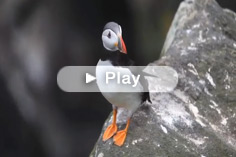

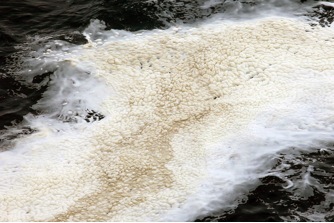




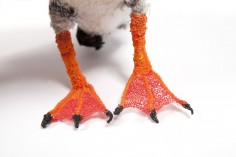
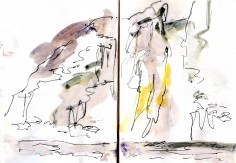
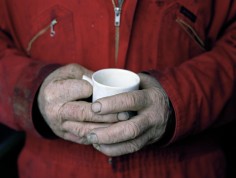
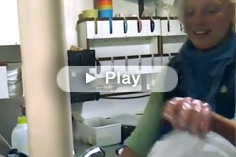
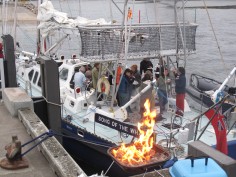
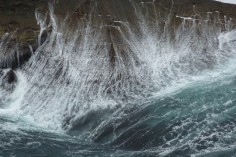
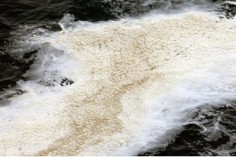
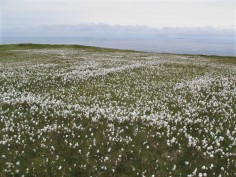
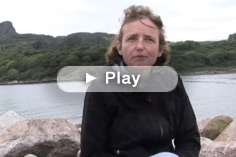
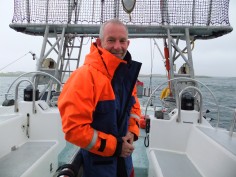








No Comments